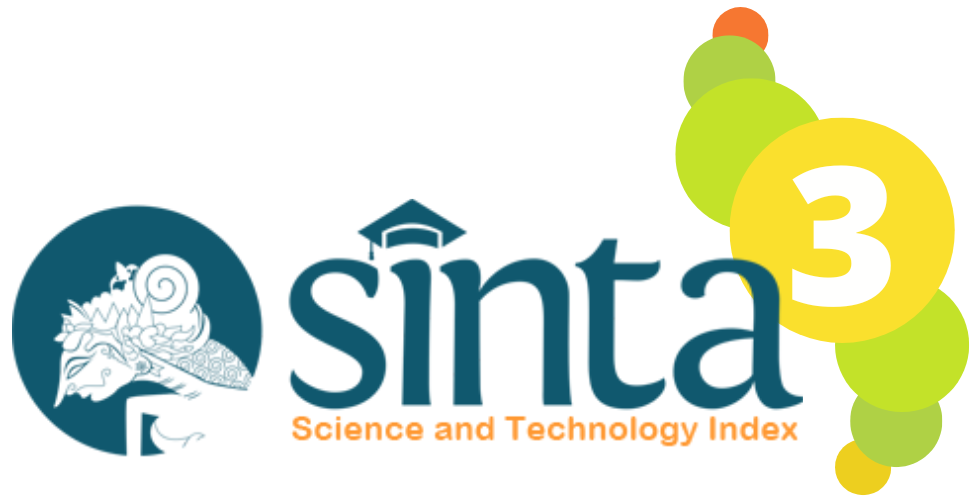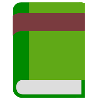PERCEPTION, MOTIVATION, AND STUDENT LEARNING OUTCOMES AFTER USING THE BOT TELEGRAM INTERFACE APPLICATION
Sari
Kata Kunci
Teks Lengkap:
PDFReferensi
Ahmad, H., Z. Ahmad., dan S. Sudiono. 2018. IT Capability Mapping on Biological students in the Industrial Revolution Era 4.0. Laporan Penelitian PNBP FKIP Unkhair Tahun 2018.
Arsyad, Azhar.2011. Media Pembelajaran. Jakarta: PT Raja Grafindo Persada
Anggraini, A. F., Maridi, M., & Suciati, S. (2018). Analisis kemampuan berpikir ilmiah siswa kelas XI IPA kawasan pegunungan Provinsi Daerah Istimewa Yogyakarta. Jurnal Bioedukatika, 6(2), 102. https://doi.org/10.26555/bioedukatika.v6i2.10944
Balcaen, P. L., & Hirtz, J. R. (2007). Developing Critically Thoughtful e-Learning Communities of Practice. Journal of E-Learning, 5(3), 173–182.
Bambang, S., Setiawan, A. W., Nora, M., & Dayang, H. T. (2012). Penggunaan Teknologi Informasi dan Komunikasi dalam Pengajaran: Survei pada Guru-Guru Sains SMP di Indonesia [Indonesian]. Jurnal Pengajaran MIPA, 17(1), 122–131. https://doi.org/10.18269/jpmipa.v17i1.251
Fatimah Saleh, & Lim, C. S. (2010). Analisis Data Kualitatif. In Penyelidikan dalam Pendidikan (pp. 488–507).
Fitriyadi, H. (2013). Integrasi Teknologi Informasi Komunikasi Dalam Pendidikan: Potensi Manfaat, Masyarakat Berbasis Pengetahuan, Pendidikan Nilai, Strategi Implementasi Dan Pengembangan Profesional. Jurnal Pendidikan Teknologi Dan Kejuruan, 21, 269–284. https://media.neliti.com/media/publications/163709-ID-integrasi-teknologi-informasi-komunikasi.pdf
Hutchison, A., & Reinking, D. (2011). Teachers’ perceptions of integrating information and communication technologies into literacy instruction: A national survey in the United States. In Reading Research Quarterly (Vol. 46, Issue 4, pp. 312–333). https://doi.org/10.1002/RRQ.002
Rahman, M. H., & Ahmad, Z. (2017). Kompetensi Guru IPA SMP Pulau Bacan Kabupaten Halmahera Selatan. Humano: Jurnal Penelitian, 7(2), 207–216.
Riduwan, M. (2004). Teknik Menyusun Thesis. In Bandung, Alfabeta.
Sanders, J. (2004). Competency Framework for Teachers. Department of Education and Training, 1–48. http://www.det.wa.edu.au/policies/detcms/policy-planning-and-accountability/policies-framework/guidelines/competency-framework-for-teachers.en?oid=com.arsdigita.cms.contenttypes.guideline-id-5245769
Slavin, R. E. (2010). Cooperative learning. In International Encyclopedia of Education. https://doi.org/10.1016/B978-0-08-044894-7.00494-2
DOI: https://doi.org/10.33387/j.edu.v19i2.4140
Refbacks
- Saat ini tidak ada refbacks.
| Journal Name | Jurnal Edukasi |
| Print ISSN | 1978-6115 |
| Elektronik ISSN | 2597-9213 |
| Publisher | Fakultas Keguruan dan Ilmu Pendidikan (FKIP) Universitas Khairun |
| Address | Jalan Bandara Sultan Baabullah Kampus I Unkhair, Kelurahan Akehuda, 97728 Kecamatan Kota Ternate Utara, Provinsi Maluku Utara |
| Country | Indonesia |
| j.edukasi@unkhair.ac.id / edukasi2019@gmail.com | |
| URL | https://ejournal.unkhair.ac.id/index.php/edu/index |
| DOI | http://doi.org/10.33387/edu |
Indexed By:
-----------------------------------------------------------------------------------------------------------------------------------------------------------------------------

EDUKASI is licensed under a‚ Creative Commons Attribution-NonCommercial 4.0 International License.












